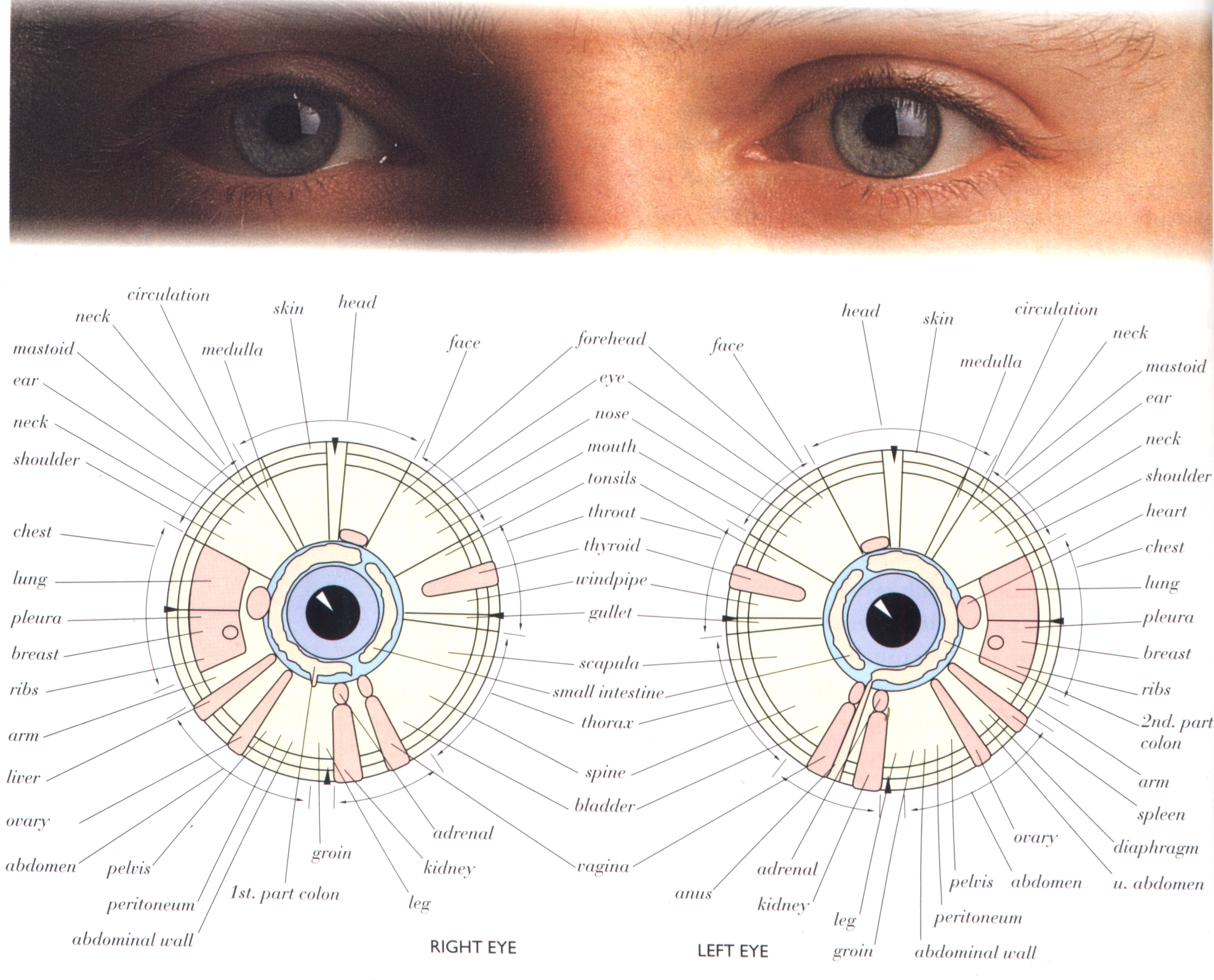
Iridology
According to iridologists, the iris of the eye represents a kind of map of human glands, organs and systems of the whole human body. Problems show up on the iris as spots, flecks, white or dark streaks, and so on. Texture and color indicate the persons's general state of health.
Some iridologists claim they can find tendencies towards inherited disease and possible future problems. and some even address emotional and spiritual health problems this way. Common conditions that iridologists claim to be able to diagnose include arthiritis, heart disease, skin problems and allergies.
Iridology was developed in the 19th century by the Hungarian Dr. Ignatiz von Peckzely, who as a boy noticed changes in the eye of an owl with a broken leg as the owl made its recovery. He published his theories in 1881, and soon after a Swedish doctor Nil Lininquist added his own observations.
....
Read More....
But iridology did not become widely popular until Dr. Bernard Jensen pioneered its use in the United States. In 1950 he published a chart that showed the location of every gland and organ reflected in each eye. The left eye, he said, corresponds with the left-hand side of the body, the right eye with the right-hand side. Generally speaking the upper organs (for example, the brain) are at the top of the iris, and the lower ones (for example, the kidneys) at the bottom. The bodily systems - digestion, blood and lymph glands and organs, muscles, skeleton, and the skin - appear in six rings around the pupil.
Some practitioners examine the iris with a flashlight and magnifying glass. Others take color photographs or transparencies (slides) that are magnified and read. Because iridology is a purely diagnostic tool, it is best to see a practitioner who is also qualified in some form of treatment to benefit properly. Iridology, or "iris diagnosis" is widely used by many natural therapists to aid diagnosis and assessment, particularly in the United States, Germany and Australia.
Many iridologists also practice nutrional therapy and will prescribe herbal remedies or nutritional supplements to help the condition that they detect. The aim is to pinpoint the underlying causes of generalized symptoms such as joint pain or bowel problems, both of which may be the result of an allergy, and to support and rebalance the whole body system.

